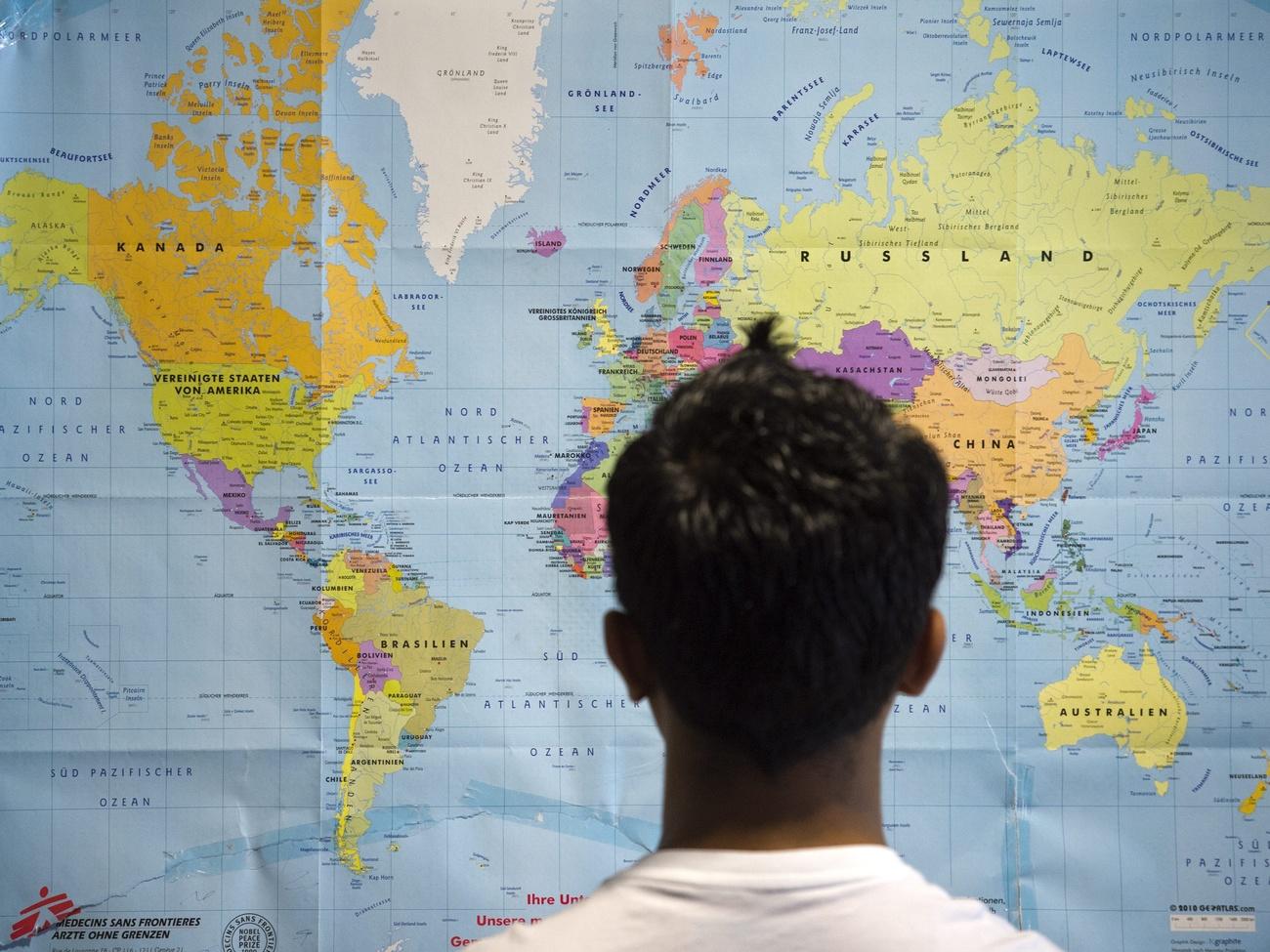
Swiss migration office defends new asylum process

Switzerland’s new system for accelerated asylum procedures has cut the average processing time down to 50 days for a request. But the faster procedures have sparked criticism in some circles.
The new accelerated procedures, approved by Swiss voters in 2016, were introduced last year with the goal of shortening the time it takes to decide whether applicants stay in the country or have to leave.
In its first global assessment, the State Secretariat for Migration (SEM) said on Thursday that overall the new system had been positive.
On average, SEM needs only 50 days to decide on an asylum application. In the rest of Europe, under the European Union’s Dublin system – which establishes the state responsible for the asylum request – it now takes 35 days to conclude an application, compared with 60 days in the past.
Presently, four out of five asylum applications are processed under an accelerated or Dublin procedure, while the remainder follow a longer procedure that typically takes 100 days, SEM said. People who filed requests are allocated to one of six national centres across the country, rather than being processed by cantonal authorities.
In French-speaking Switzerland, 53.3% of applications are processed according to the new accelerated procedures.
SEM director Mario Gattiker told reporters on Thursday that the aim of the system is to be “fair”. “Switzerland must not become an attractive country for people who are not in need of protection,” he said.
The office said the number of voluntary departures had increased by a third, covering countries from Georgia to Turkey, Nigeria and Iraq. Financial support for people returning is now subject to a sliding scale – higher for those making an early decision.
Under the new system, just over a third (35%) of asylum decisions are appealed before the Federal Administrative Court. In 2018, this stood at 28.1%, up from 25.3% in 2017.
Complaints
The SEM press conference comes after criticism of the new system by Miriam Behrens, the director of the non-governmental Swiss Refugee CouncilExternal link.
“The authorities are putting the focus on speeding up the process, to the detriment of quality and fairness,” Behrens told the Neue Zürcher Zeitung and Le Temps newspapers. And with more cases now being sent back to the SEM for further review, the effect is in fact counter-productive, she added.
The fact that so many complaints raised by asylum seekers – against decisions made by the SEM – are being upheld by courts shows that there is an issue, she said.
In 2019, the number of people seeking asylum in Switzerland fell to a 12-year low of 14,269 in 2019. Most asylum seekers (2,899) came from Eritrea, with Afghanistan (1,397), Turkey (1,287) and Syria (1,100) also featuring prominently among applicants.
The Swiss migration office explained the 6.5% drop in numbers from 2018 by the decrease in asylum seekers from the Mediterranean zone and a migration treaty between Turkey and the EU.

More
Refugee Council head criticises ‘hasty’ Swiss asylum procedures

In compliance with the JTI standards
More: SWI swissinfo.ch certified by the Journalism Trust Initiative















![The four-metre-long painting "Sonntag der Bergbauern" [Sunday of the Mountain Farmers, 1923-24/26] had to be removed by a crane from the German Chancellery in Berlin for the exhibition in Bern.](https://www.swissinfo.ch/content/wp-content/uploads/sites/13/2025/12/01_Pressebild_KirchnerxKirchner.jpg?ver=f05a5a9c)














You can find an overview of ongoing debates with our journalists here . Please join us!
If you want to start a conversation about a topic raised in this article or want to report factual errors, email us at english@swissinfo.ch.